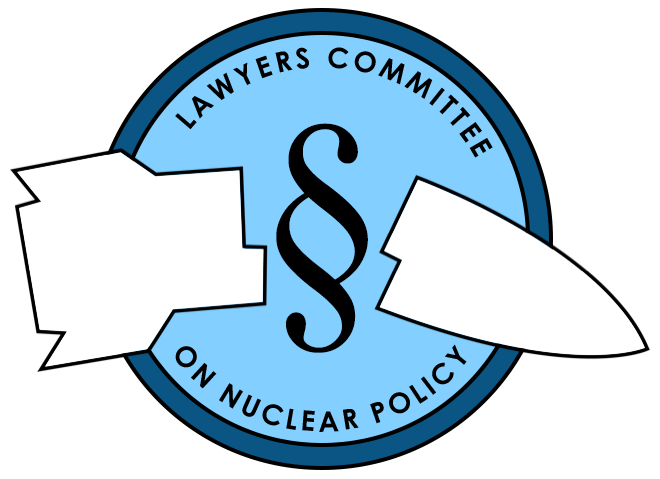Back to Curriculum | Download a PDF version of this module
Last updated May 2022
Objectives/Goals:
Students should come away from this curriculum module with a solid grasp of international human rights law as it pertains to nuclear weapons. Students will be able to identify key human rights treaties and bodies as well as outline how to effectively advocate using these treaties in the relevant fora. Important tools of international law in this area of study include (but are not limited to): the UN Charter, International Covenant on Civil and Political Rights, International Covenant on Economic, Social and Cultural Rights, and the Convention on the Elimination of All Forms of Discrimination Against Women.
Reading List:
Engagement with the UN Human Rights Council
General Comment No. 36, para. 68, UN Human Rights Committee (2018)
Comments and Proposal re Draft Gen. Comment No. 36, International Association of Lawyers Against Nuclear Arms ( 2016); follow-up comments (2017)
LCNP submissions to UN Human Rights Committee: France (2021), DPRK (2021), Russia (2020); submission re US to Human Rights Council (2019)
Human Rights and Nuclear Weapons Publications
Human Rights Versus Nuclear Weapons: New Dimensions, Lawyers Committee on Nuclear Policy (2021)
“Nuclear Weapons and the Law on Human Rights and Future Generations,” Report on side event held during NPT PrepCom at the United Nations in Geneva, Seth Shelden for Lawyers Committee on Nuclear Policy (2018)
“Weapons of Mass Destruction and Human Rights,” Peter Weiss and John Burroughs, Disarmament Forum, pp. 25 - 35
Relevant UN Human Rights Treaties
Convention on the Elimination of Discrimination Against Women
International Covenant on Economic, Social and Cultural Rights
Discussion Question/Analysis Prompts:
In what ways is a human rights legal analysis against nuclear weapons complementary to a humanitarian law analysis and in what ways is it distinct?
What legal effect does a general comment from the UN Human Rights Committee carry?
Does international human rights law apply to nuclear weapons states and their policies and practices equally? Why or why not?
Why is taking a human rights approach to nuclear disarmament important? Is it effective? Why or why not?
How can we effectively incorporate human rights into international legislation and hold states accountable to upholding those rights?

